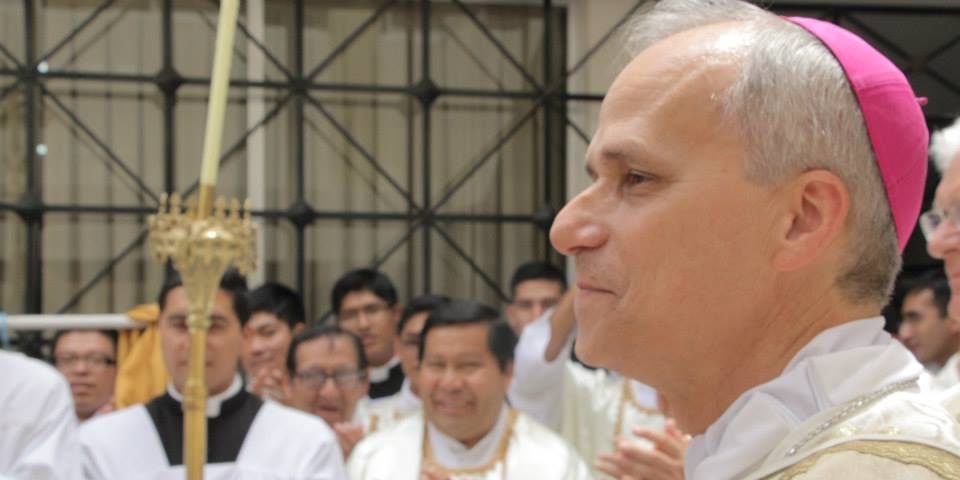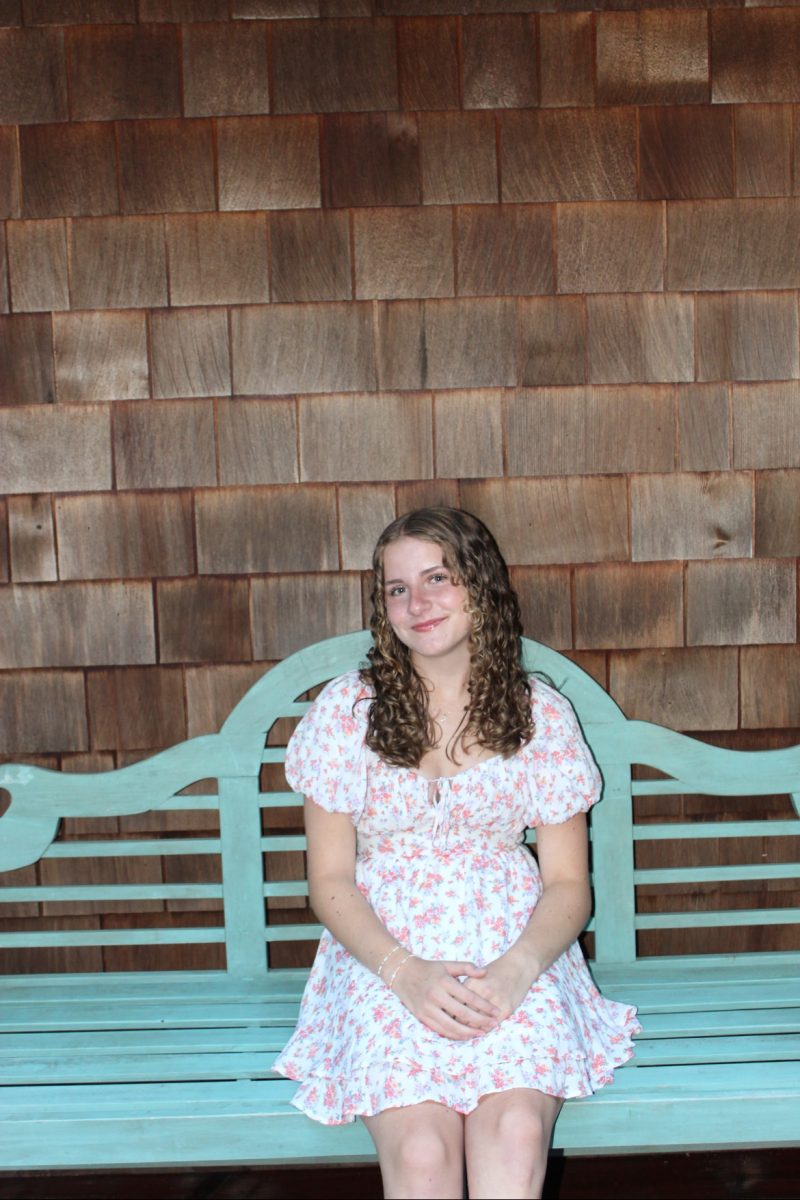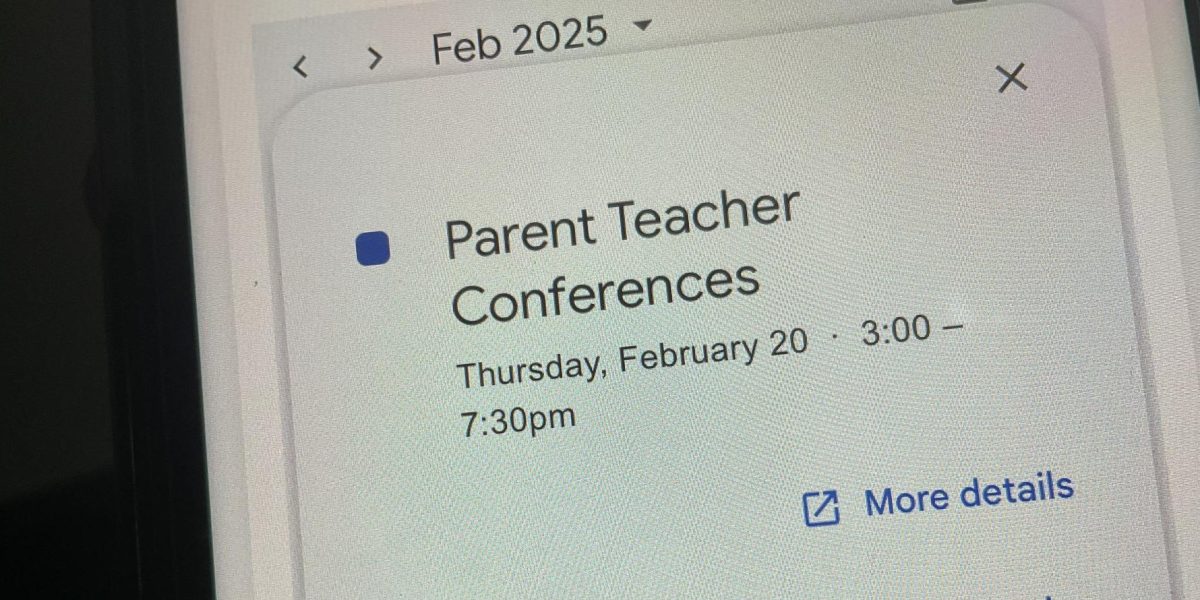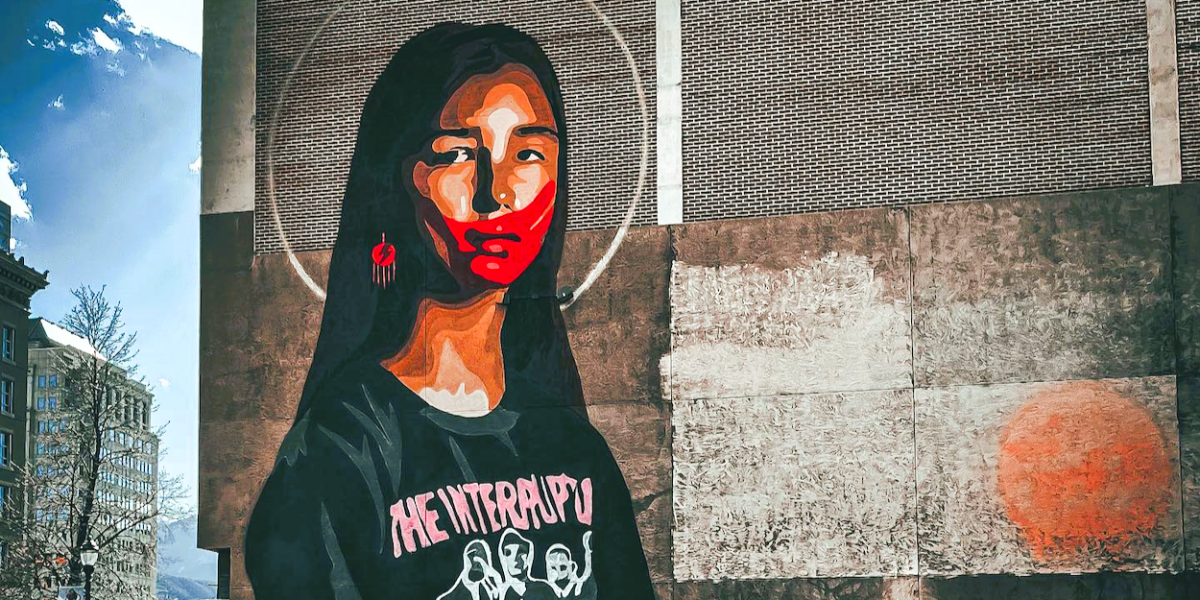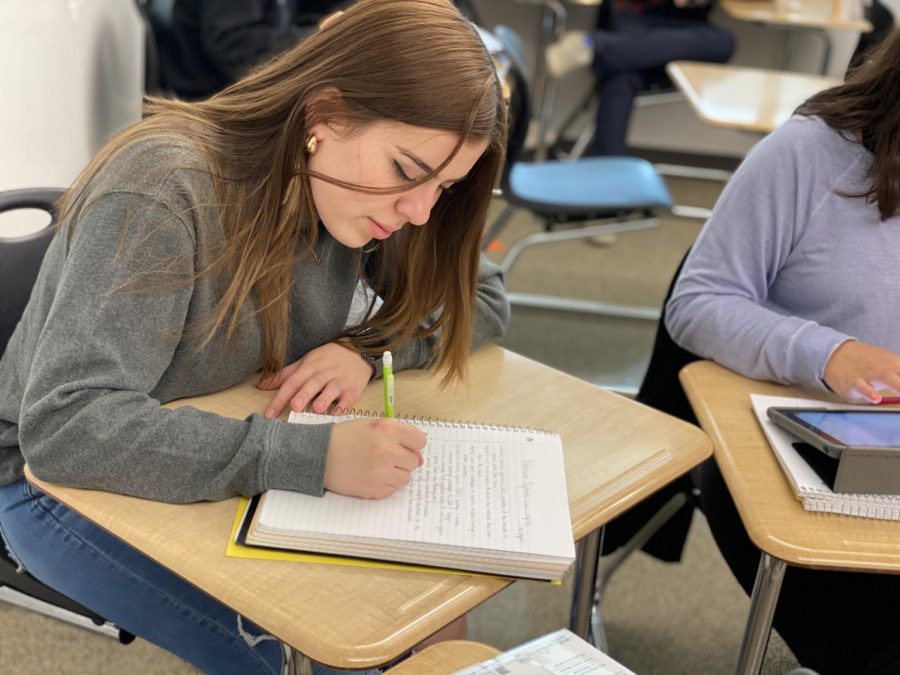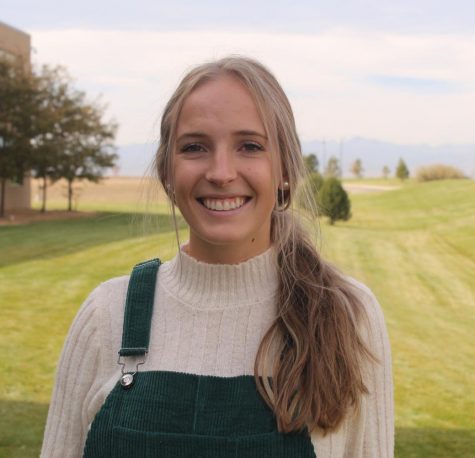Freedom for the Writers
The celebration and reform of journalism’s most controversial subject
Senior Nicole Howieson writes an outline of her upcoming article as a student journalist. It’s her first year in journalism and she’s been published multiple times within the school paper.
January 31, 2020
As we celebrate Student Press Freedom Day today and new reforms for press freedom are put into place, there is a lot to talk about, and it all revolves around the First Amendment. The idea of “freedom of speech” is usually understood as the ability to talk about and state opinions whenever and wherever as long as it is not causing harm to those around them. To those in the journalism or writing community, this comes with a slightly different meaning. It means being able to write about taboo subjects and creating writing that pushes the boundaries of our society’s sheltered thoughts. Student Press Freedom Day highlights the rights we are given and the new amendment helps to expand upon these.
According to The Student Press Law Center, Student Press Freedom Day is, “A national day of action when we celebrate the contributions of student journalists and highlight the need to support their independence without censorship or threat to their advisers.” This day reflects on the Supreme Court decision in the 1988 Hazelwood School District v. Kuhlmeier case which resulted in the censorship of students’ writing pieces throughout the country. Many states have put in legislation that helps to safeguard students’ freedoms while simultaneously protecting their advisers. Called “New Voices” legislation, these pieces help to promote individuality and the freedom to report on taboo or controversial topics within communities that are important for people to be educated on.
This year’s Student Press Freedom Day is especially interesting with the new amendment that is currently being sponsored in the House by Representative Barbara McLachlan (D). This modification will be added to the Colorado Free Expression Law (22-1-120) and will both conserve and broaden First Amendment rights for student journalists across the state and assure that their teachers and advisers are safe from punishment by their school or district. Specifically, it will prevent staff involved with the journalism department of being, “Dismissed, suspended, disciplined, reassigned, transferred, or otherwise retaliated against solely for acting to protect a student,” and their right to free expression (Student Press Law Center). It will also serve to expand these protections to visual, audio, and other media platforms that are considered within the journalistic department. As Barbara Mclachlan stated, “This will update our law in Colorado and get it into the 21st century.”
Among the recent talk about Student Press Freedom Day and the new amendment being added, the Frederick Scout Newspaper staff has been talking frequently about what it means to us and our rights as student journalists.
Frederick Scout Editor Ella Berrend stated, “I think this new amendment is a win for everybody. The students will feel more open to bringing new and interesting ideas to the table without being fearful of the consequences, and the adviser will feel safe knowing they can effectively help the student make their idea come to life without fear of retaliation.”
As we all know, the First Amendment in the United States Constitution gives us freedom of expression, religion, peaceful assembly, press, and petition. However, there are many loopholes that schools and other powerful people find to rid their communities of articles and news that may spark too much controversy and, as they see it, damage their reputation. As we see it, it is important to be able to jump into action when we see things that concern, interest, or excite us around our community and be able to create a piece of writing that reflects our mind and the way we process this information. School and community cultures are enhanced when everyone feels as though they are safe to express their ideas thoughtfully. When students sense hesitancy or backlash for the ideas that they are passionate about, it resonates with them throughout the rest of their schooling, careers, and beyond. While these freedoms are crucial to creating a more open community, it is also imperative that the advisers or anyone involved with the newspaper are protected as well. While many may assume the reason they tend to censor students’ work is to protect the young writer, it is also mainly to protect themselves from punishment by the higher-ups. This new amendment will ensure that they are not retaliated against for protecting their students and their ideas, making them feel safer and allowing for more creativity among the students and their teachers.




